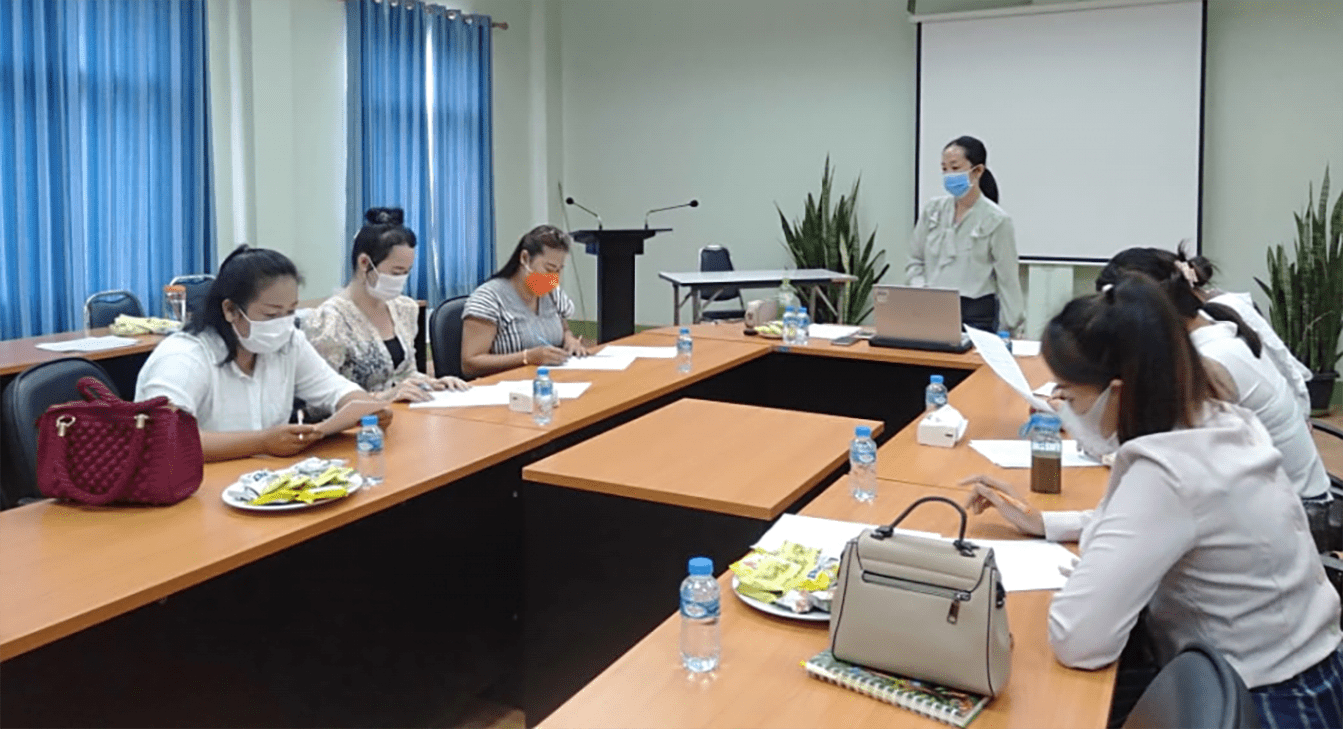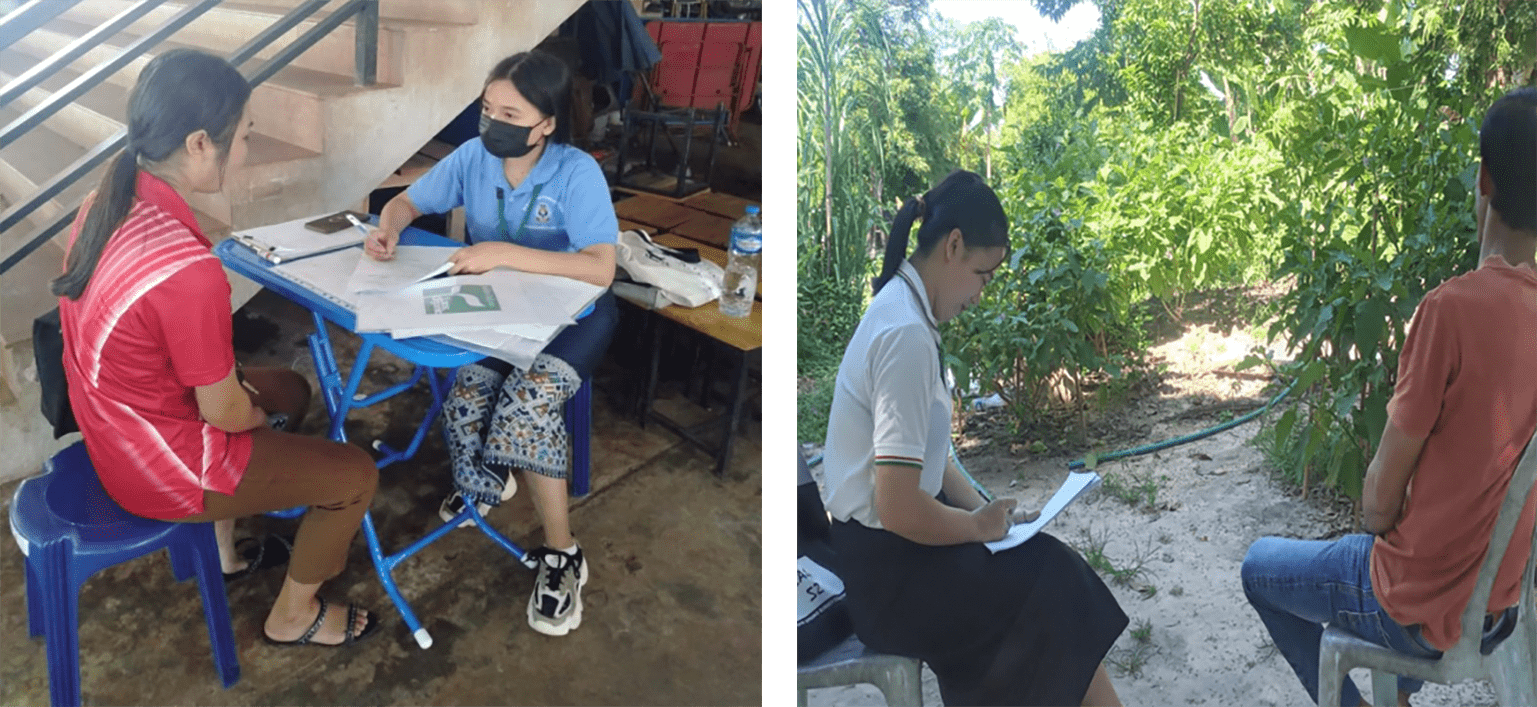

Comparing purchasing behaviour for organic food in Laos and Australia
September 28, 2023

As part of our suite of NextGen programs to support and encourage young people in studies, careers and volunteering in international agricultural research and development, Student Awards are funded each year by our State and Territory Committees. Watch out for the launch of our 2024 awards this November.
In 2021, eleven talented students were granted awards which were heavily impacted by the global pandemic, including Chitpasong Kousonsavath, a PhD student from the Centre for Global Food and Resources at The University of Adelaide, who can now present her student award experience.
Chitpasong Kousonsavath’s PhD research focuses on the purchasing behaviour of consumers regarding organic food in Laos and Australia. This project utilises two distinct datasets, respectively covering 1,001 Australian and 272 Lao consumers. While Chitpasong’s research involves data collection in Laos and Australia, this report focuses on work conducted in Laos, where the financial support from the Crawford Fund Student Award was utilised.
“The core focus of this project revolves around consumers’ knowledge and trust in relation to their purchase intention. Additionally, the study aims to provide a comparative analysis of organic food purchasing behaviour between Australian and Lao consumers,” explained Chitpasong.
“The Student Award allowed me to include Laos as an emerging organic food market that was not previously well understood and conducting the field survey in-country provided greater opportunity for me to test different research methodologies and gain further experience in consumer studies.”
Chitpasong explained that this research could potentially assist both government and organic food businesses in better understanding the current status of organic food consumption, and to develop more targeted and effective promotional strategies.
In her report she explained sustainable agriculture and organic farming were established in Laos in the late 1990s by Non-Government Organizations (NGOs), and most of their work focused on the production side. During the 2000s, several organic movements were introduced. These included market linkages, and the establishment of an organic certification body under the Ministry of Agriculture and Forestry.
Despite the Lao Government’s strong support, Chitpasong found that there is relatively limited knowledge available about organic food consumption behaviour in Laos.
“The growing trend of organic food production in Laos highlights the need for a deeper understanding of related consumption behaviour, which currently remained largely unknown. Therefore, obtaining valuable insights into the demand side of organic food can facilitate the development of effective marketing strategies,” she said.
Data collection for Chitpasong’s project involved six focus group discussions, and consumer surveys at the major wet and organic food markets around the capital city Vientiane.

The study primarily revealed that, wet markets played a crucial role in household food shopping behaviour of the Lao consumers, with key food items such as rice, meat, fresh fruits and vegetables and fish and seafood were shopped from the wet market.
In addition, participants rated foodborne illness from bacteria and contaminations (42.6%) and the use of pesticide and herbicide (32.4%) as their most important food safety concerns. Participants were asked to express their perceptions over the benefits of food product labelled with the Lao organic logo. Over 70% of respondents perceived that food products labelled with organic logo are a healthier choice, better for the environment, better for human and society, guaranteed to be better quality and free from chemicals. These indicated a more positive perception for foods with organic logo.
The knowledge about organic food was also explored, with participants asked if they have seen or heard about organic food production and what it meant to them. Results showed that, the Lao consumers were relatively well-informed about the meaning of organic food production, with almost 90 per cent correctly answering the survey.
According to Chitpasong there are a number of benefits from her research for this project.
Firstly, the project paved her way towards a future career as a consumer behaviour researcher. Secondly, this research has highlighted key drivers and barriers of organic food consumption, which were previously overlooked, and will be able to help governments and organic food businesses better target their potential consumers. Finally, this project has contributed to the extension of the research collaboration between the University of Adelaide and the National University of Laos, which could help shape an upcoming new project on safe, fresh and year-round vegetables in Cambodia and Laos.




